How To Shoot Seventy In Your Seventies
Golfers in their seventies should not laugh off the idea that they can beat their age. Carly Frost offers tips on how to make this a reality
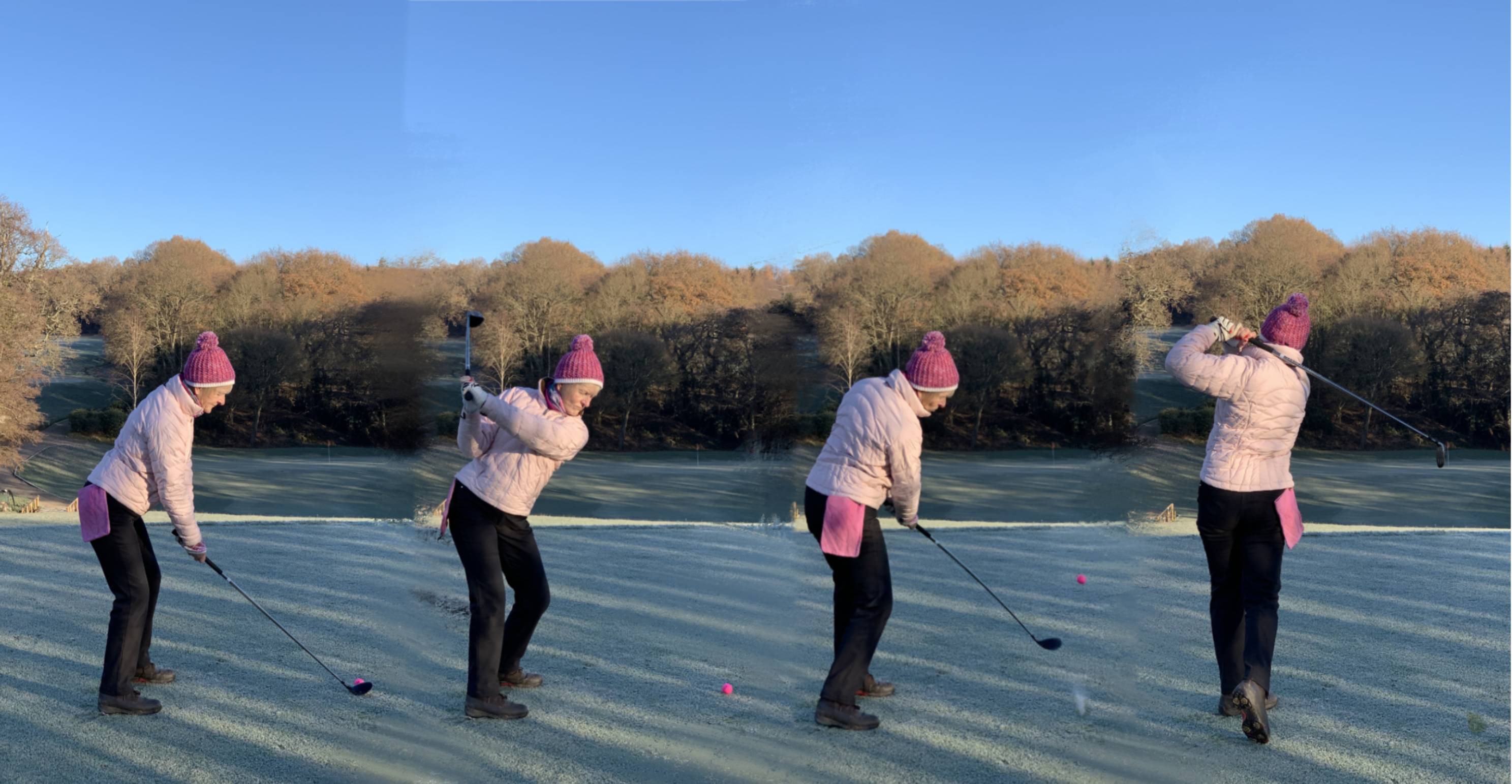
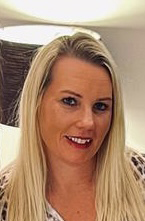
Age is only a number, or so we are led to believe. I’m certainly shooting some of the best scores of my life in my forties. How many of you fall into what I call the super seniors (over 70s) category? According to England Golf you become a senior at 50 and can start competing on the national and international circuit. But what do you realistically have to aim for two decades on? Surely competing against someone 20 years younger than you is quite a feat? Well, how about taking on the course.
In my opinion you have the most amazing opportunity to genuinely beat your age at this time in your life. I’ve suggested the challenge to many spritely seventy-somethings over the years who have laughed the idea off. But what if you could genuinely shoot a score in the seventies in your seventies? It is most definitely possible, and I’ve seen it done.
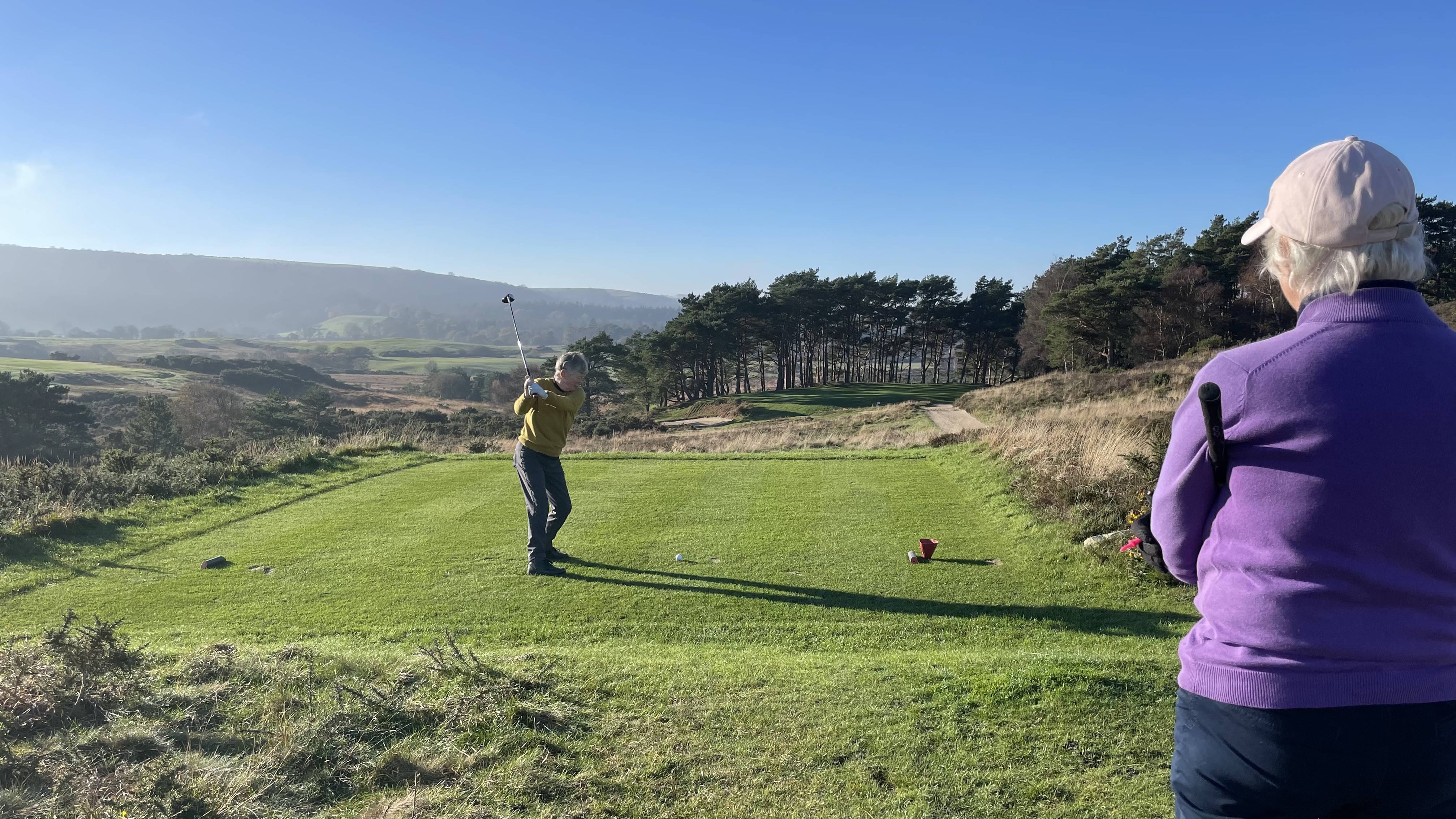
Ex-Curtis Cup player Jean Bisgood and former club president at my home club, Parkstone in Dorset, would regularly shoot in the seventies at this age. With impeccable course management, she demonstrated an amazing ability to navigate the golf ball around the course, avoiding trouble and had a sensational short game that always saved her score. My mum turns 70 next summer and I’m certain she can do this if she puts her mind to it.
Modern golf equipment is undoubtedly helping us roll back the years, extending our longevity and enjoyment of the game. The big-headed driver, the speed-core aerodynamic ball, the forgiving iron, the easy-to-hit hybrid…these are all clubs that give seniors a serious helping hand.
In my view there are 10 factors of golfing decline that come with age. But rather than looking at these as impossible hurdles to leap, how about addressing them and find ways to improve. Do that and you’ll shoot the best scores of your life.
Factor 1: Swing Mechanics Falter
The older you get, the worse your swing becomes as your body starts to decline. Your range of movement (body turn) gets shorter because you lose muscle elasticity and freedom of movement in your joints. You also have less proprioception - that’s the sense of spatial awareness, movement or pattern.
Get the Golf Monthly Newsletter
Subscribe to the Golf Monthly newsletter to stay up to date with all the latest tour news, equipment news, reviews, head-to-heads and buyer’s guides from our team of experienced experts.
The Fix:
The solution is to find a decent coach, somebody with a proven track record, not just chosen through popularity or status by association. A good coach will assess you and understand your goals and requirements, creating a sophisticated plan that will make you accountable. What I’m trying to say is you don’t need a ‘quick fix’ lesson. You need a strategy.
To improve your flexibility, mobility and stability, go to yoga or pilates classes. Core strength forms the foundation of many of these movements and underpins the golf swing.
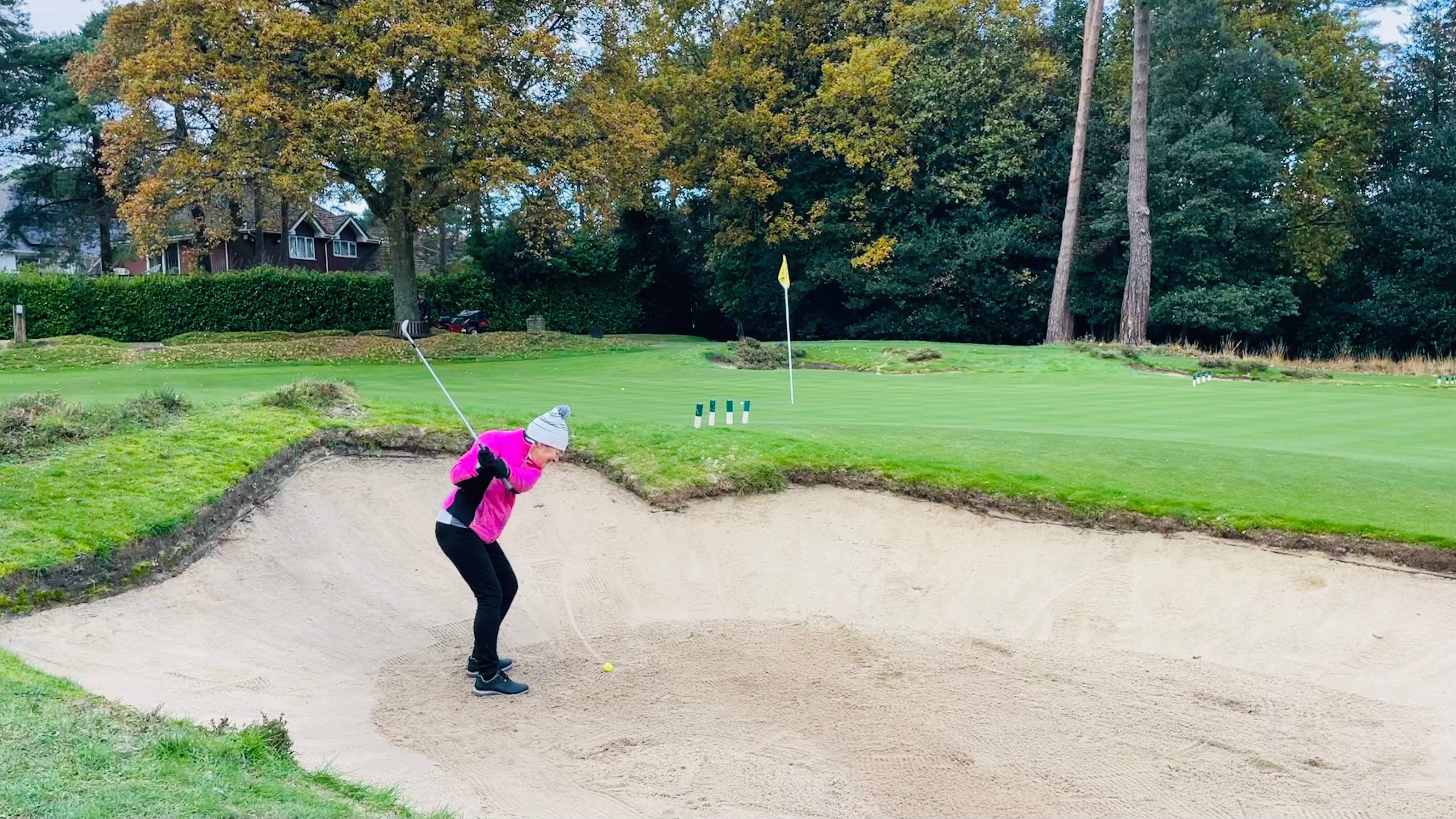
Factor 2: Poor Co-ordination
Why is it that we find it so easy to catch a ball when we’re kids, yet such a simple action gets harder and harder as we get older? It’s all to do with co-ordination from your eyes to your brain processing and balance that diminishes. As you get older these functions start to flounder and change.
The Fix:
The best thing you can do is keep playing a moving ball sport - tennis, squash, badminton - one where you have to anticipate and time the motion of the stroke. Returning to a static ball sport will then feel much easier.
Factor 3: Lack of Fitness
When I was a teenager I used to carry my full set of golf clubs on my back, climbing hilly courses like a mountaineer, regularly playing in 36-hole tournaments on one day, no questions asked. As I’ve got older, the walk alone around 18-holes has become more strenuous. Our cardiovascular, respiratory (CV) fitness reduces with age. This has a direct link on our endurance in golf. It also has an effect on concentration during a round through the level of oxygenation in the blood. You are basically a machine that needs to think, feel, act and move.
The Fix:
To improve your stamina, rehearse the walking element of the game. It’s estimated that we cover up to seven miles during a round of golf. Try getting this distance in whilst using intervals to increase and decrease your speed so that your recovery becomes more efficient.
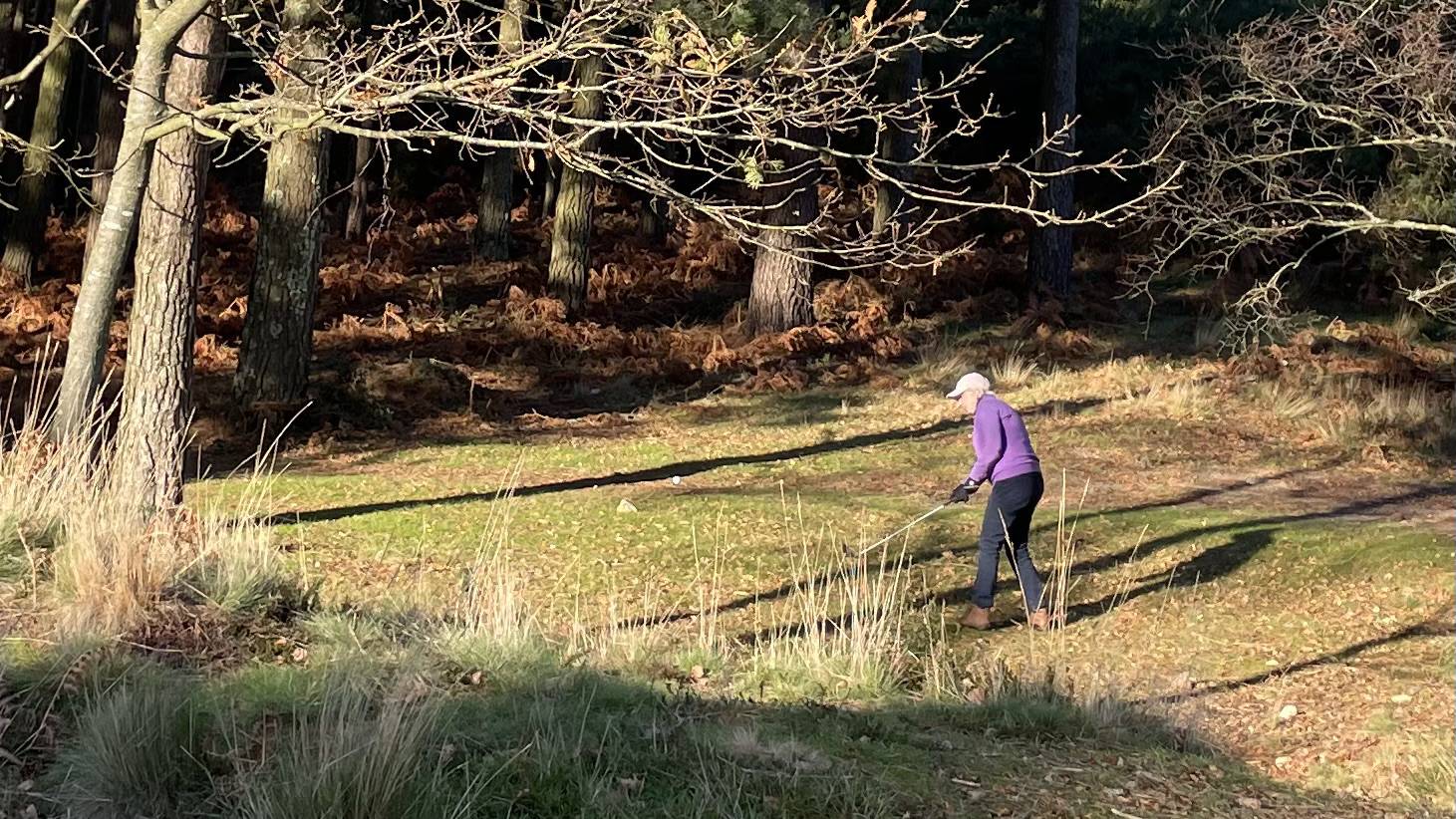
Factor 4: Focus
You can look at this problem two-fold - both visual and concentration. Firstly, your eyesight declines, we need reading glasses, it’s harder to follow the ball in flight (and find it), judge distances and our depth perception reduces, making green reading difficult. Even your ability to aim worsens.
Secondly our concentration lapses quicker with age. That’s why we often play brilliant golf on the front 9 and fall apart on the back 9.
The Fix:
Work on your mind. Improve your mental sharpness by playing Suduko or bridge. Do the daily crossword in the newspaper. Anything you can imagine that gives you regular interaction with mental agility.
From a green reading and distance judgement perspective, you need to do two things. Firstly, embrace distance measuring devices. These aren’t just for young or elite players. They are a great tool to put an accurate number to what you are seeing. Secondly, practice green reading. Take time with one ball to read, align and roll the putt to different targets. Change the putt each time.
Factor 5: Lack Of Power
If you have played golf for many years you are probably lamenting a loss of length, particularly off the tee - I certainly am. As you get older your muscle mass declines rapidly. This is directly linked to the function of the tendons and ligaments. All of which combine to produce the athletic action required to make a powerful golf swing.
The Fix:
Now, more than ever, is the time in our lives when it’s important to lift weights. Yes, going to the gym in your sixties, seventies and even eighties can seem daunting. However, I’m not talking world champion stuff, just basic fundamental movements to build up muscle and strength. Push, pull and squat. I weight train three times a week doing simple exercises like squats, deadlifts, bench press and arm curls.
The other essential thing to work on is grip strength. It’s such a myth that we need to grip the club lightly. The best players in the world have tremendous forces from their hands to the grip. Have you ever noticed how when you go to shake a really old person’s hand it seems so limp and fragile? Our hands are our only connection with the club. They are the hinge that creates a lot of the direction of the golf swing. The weaker they are, the weaker the resulting shots. You can work on your hand strength with a squeezy ball. It can be quite therapeutic to just sit and squeeze a ball while relaxing watching the TV.
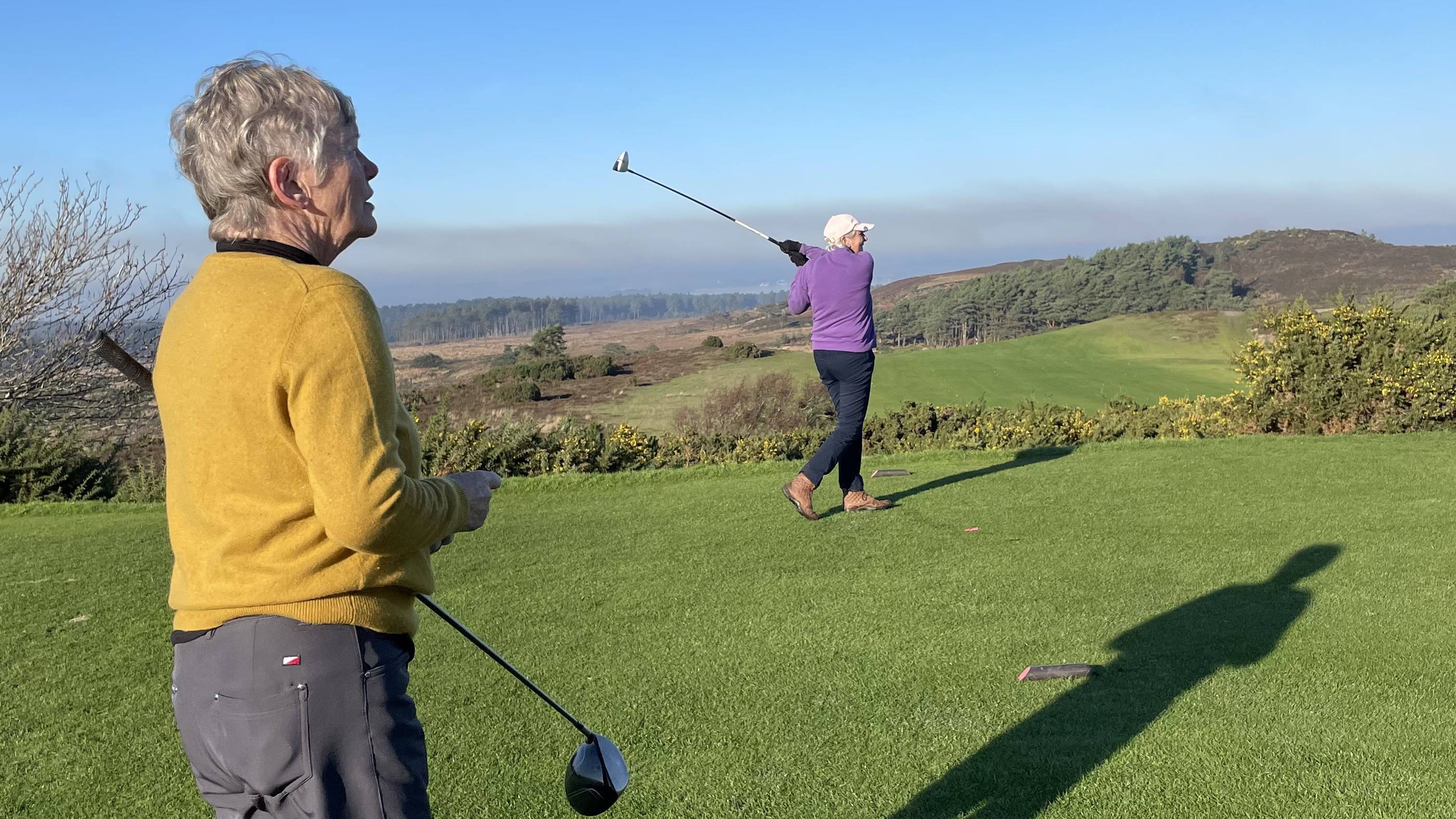
Factor 6: Speed
A loss of distance is often as a direct consequence of a loss of swing speed as we get older. Yet so many of us are very accepting of this decline from a psychological perspective. We shouldn’t expect to hit the ball as far, right? There’s also a point where accuracy becomes more important in our eyes than distance, we end up playing ‘safe’. In fact, playing smart would be a better way to look at it.
The Fix:
Start by upgrading your clubs. Modern golf technology is amazing. Those yards you’ve lost can be easily regained. The weight of the golf club is very important. There are many super light shafts options that are really stable.
Secondly, do some speed-specific training using products like Super Speed Golf or the Sure Speed. Take the shackles off and let the club swing longer. Get the crack of the whip in the right place. This will all transfer to your swing when you play.
Factor 7: Loss Of Touch And Feel
Your touch and feel are very similar to your reactions (that ball catch I was talking about.) Your ability to co-ordinate brain-to-motion as you get older decreases significantly. The same can be said for your sense of tempo, touch and feel on the golf course.
The Fix:
To a degree, this can be fixed through improved grip strength (from that squeeze ball tip I gave you,) giving you a more heightened sense of control.
I call a practice drill for judging distance and pace that has always worked for me the ‘Goldilocks drill’. Take three balls to the practice green and find a target. Hit the first too long, the second too short and try to get the third shot just right. You can do this for chipping and putting.
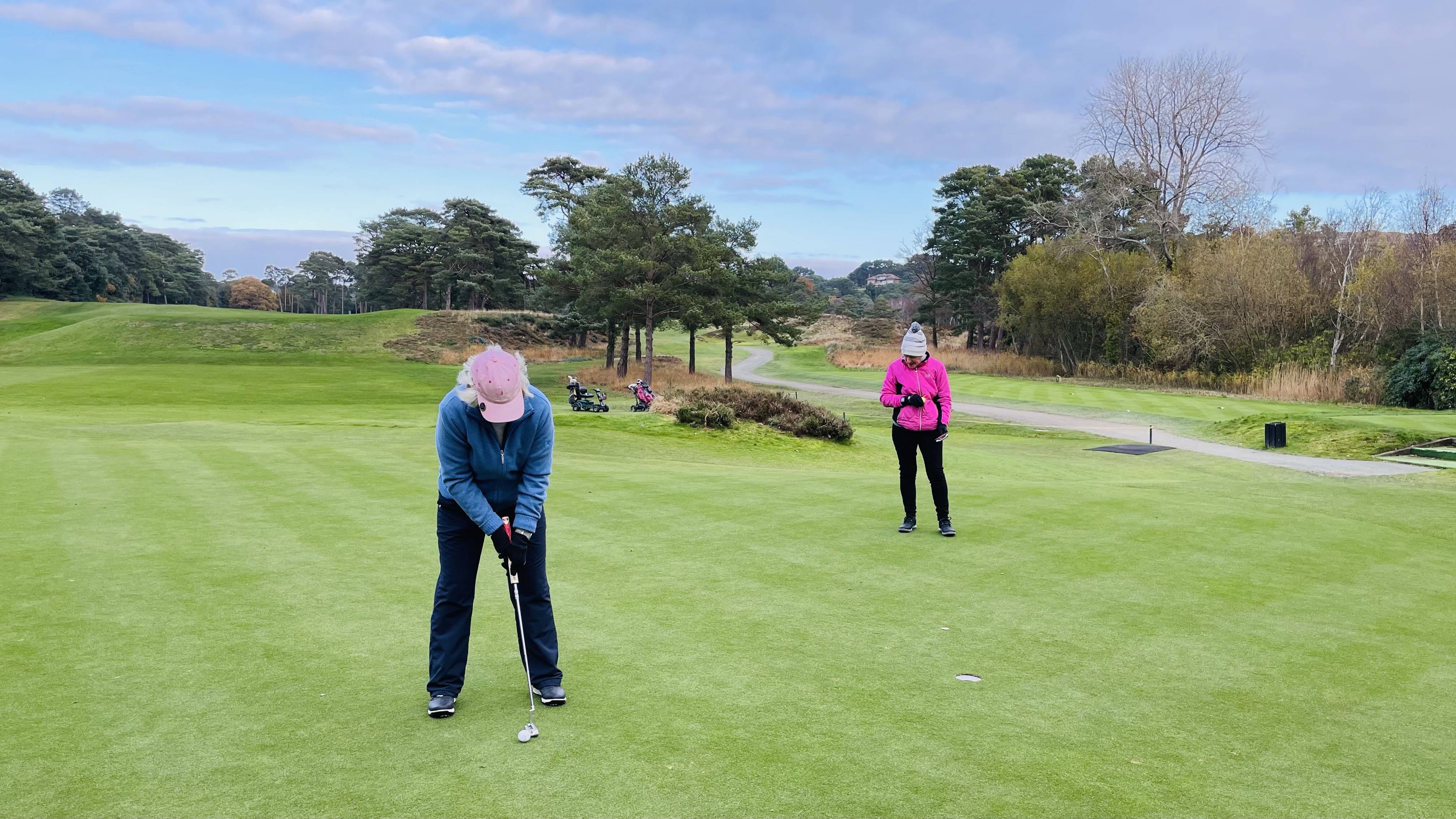
Factor 8: Time
Why is it that the older we get the faster time flies? I’m forever wishing my son would stop growing up so quickly. Living in the past is a big problem for many golfers. We’re guilty of looking at the golf course we play through the lens our younger eyes from yesteryear and lamenting our loss of ability, using phrases like: “I used to be able to drive the green on this par 3.” These comparisons to your former golfing self, whether in looks/body, skill or performance, are never going to be a positive attitude.
The Fix:
You need to look at what you’ve got rather than what you’ve not. Self-appreciation is key. One of the main benefits of being a pensioner in retirement is time. You can finally play more golf and work on your game. By their seventies, most golfers have had great life experiences, whether that be in business or as parents, or socially. You should call upon these life skills for your golf. Now is the opportunity when you have time to improve, make a plan, create an action-list against your issues and stop the negative flow. Understand your skill set and have a positive mindset to improve it.
Factor 9: Confidence
So many wonderful women I’ve met over the years seem to lose their zest for life as they get older. We lose our positive energy and the optimistic outlook we had when we were younger. There’s a sense of fear of getting old. We start wearing a pessimistic cloak. Negativity creeps into our games. I notice names of players who used to enter competitions like the club championship no longer choosing to compete. The good players in the club deciding not to put their name forward for county team selection consideration any more. The moment that you decide not to compete in these events because you are too old sends the wrong signals to your brain. It’s like taking your foot off the gas. Reducing your stimulation to improve.
At the start of 2022, I was in a bad place with my golf, I shot two of my highest scores ever in the county championships qualifier in April to miss the cut, my handicap index soared up to 7. With the help of my husband Dan Frost (who is also my coach) I have not only improved my technique, but most importantly changed my mentality and ended the year playing some of my best golf since my twenties, reaching a low handicap index of 1.9. My outlook is optimistic, my goal for next year is scratch.
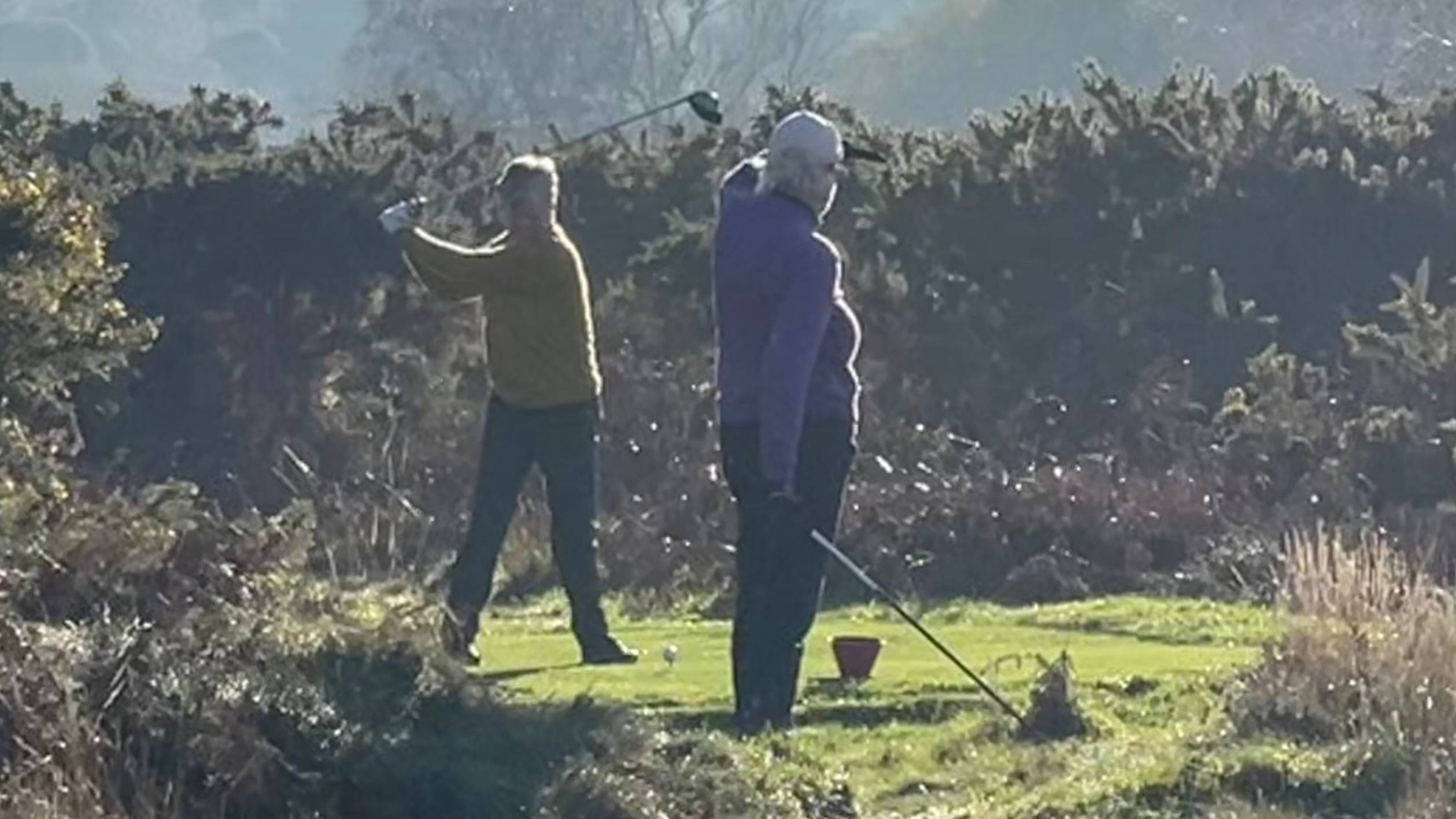
It all boils down to perception - what is your reason for playing? Are you playing to win? Do you perceive yourself at a disadvantage, therefore success is impossible? I’ve certainly been guilty of this in the last 10 years. When I had my son, I stopped entering the England national events because I believed that I could no longer match the length and talent of the teenagers in the field who could over-power courses, hitting par 5s in two easily. My shorter drives made it impossible to match them (or so I thought). In reality, I know I’m just as capable of shooting low scores. So what if I’m hitting into the green first. I’m accurate, so it’s an advantage. I can put pressure on my opponents.
The Fix:
Start competing again. Don’t fear your opponents. Golf is a game where you only have one opponent - the course!
Factor 10: Loss Of Skill
This is due to a combination of many of the things I’ve already highlighted. In reality, poor skill comes down to inadequate fundamentals. Allowing poor motor patterns to develop (swing faults) and not continuing to upgrade your technical know-how as you get older to align with modern techniques. Yes, times have changed and so should you.
Perhaps you’ve just become too familiar with your own course? Many of us get stuck in our ways. Removing the excitement of new experiences, different competitions, courses, playing partners takes away our competitive edge. That’s why some women play in the same four-ball every week. It’s like a comfort blanket. But they never improve.
The same applies to handicap. Many of us have a poor self-view. We are who we believe we are (to a certain degree) Our age and handicap numbers generally create limited beliefs, like a label of how badly I should play. How elderly I am. You are not a number.
The Fix: Old Age Is An Advantage
There are a lot of advantages to being old, or should I say, more experienced. Is your glass half full or half empty? Do you accept mediocrity and live the view of the victim of the dreaded old age, or do you adopt a positive mindset and make a plan to improve? There’s a great saying, “If you’re not growing, you’re dying.” This may seem a little dramatic, it’s only golf after all, a game we play for fun, but the sentiment is sound.
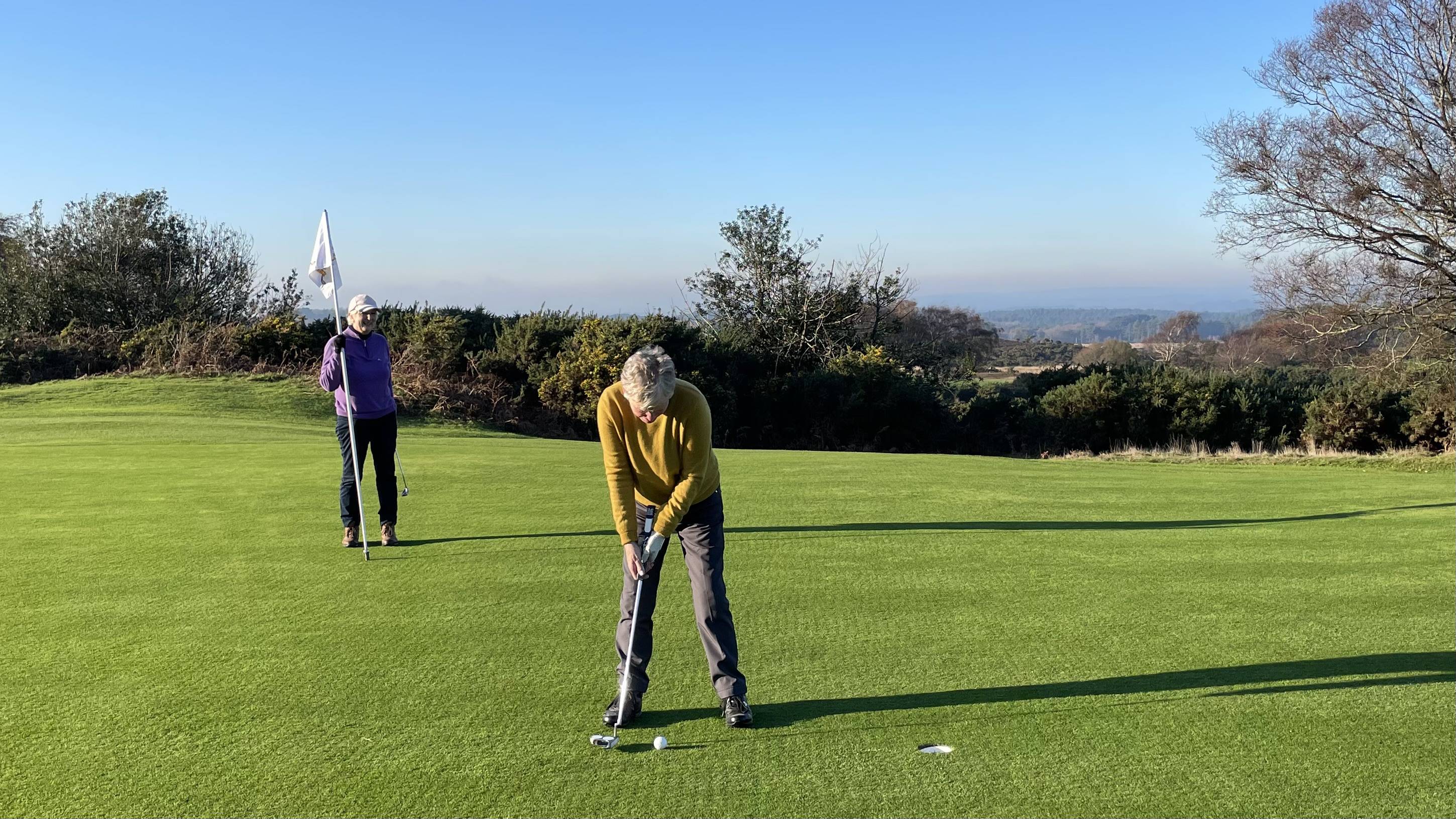
The Plan: Shoot Seventy In Your Seventies
You’ve heard the theory, now down to the practicality of achieving this goal. Ultimately, it’s going to come down to your regular rituals and behaviours. These will enable you to be sustainable as a good player. An adjustment to these will in turn change your golfing identity and transform your persona, leading to more competency, confidence and a higher level of performance.
Now it’s over to you. Select a handful of key factors from my list above and commit to improving each of them on a weekly basis. I’ve personally picked five, I want to get stronger, faster, be more patient, more accepting and more skilful next year. At the end of each week ask yourself the simple question. Which ones have got better/worse or stayed the same? One last thing that can really change your game. When you go to the practice ground, rehearse the shots that are required out on the course - don’t just hit a basket of balls. It’s not about reps. It’s really playing the shots you need to be able to play on the course that count. Include the finesse shots. It’s transformational. Each shot has a question, an answer and an execution - just like the real thing.

Carly Frost is one of the golf industry’s best-known female writers, having worked for golf magazines for over 20 years. As a consistent three-handicapper who plays competitive club golf at Parkstone and the Isle of Purbeck courses in Dorset every week, Carly is well-versed in what lady golfers love. Her passion for golf and skill at writing combine to give her an unbeatable insight into the ladies game.
Carly’s role at Golf Monthly is to help deliver thorough and accurate ladies equipment reviews, buying advice and comparisons to help you find exactly what you are looking for. So whether it’s the latest driver, set of irons, golf ball, pair of shoes or even an outfit, Carly will help you decide what to buy. Over the years she has been fortunate to play some of the greatest courses in the world, ranking Sea Island, Georgia, USA, among her favourite golf resorts. Carly's aptly-named son Hogan is already hitting the ball as far as mum and will undoubtedly be a name to watch out for in the future. Carly is a keen competitor and her list of golfing achievements are vast. She is a former winner of the South West of England Ladies Intermediate Championship, a three-time winner of the European Media Masters and she once beat an entire start-sheet of men to the title of Times Corporate World Golf Champion. She has played for both the Dorset and Surrey County Ladies first teams and is known for her excellent track record at matchplay.
Carly holds the ladies course record (68) at her home club Parkstone and her lowest competition round (seven-under-par 65) was carded in the pro-am of the Irish Ladies Open at Killeen Castle, playing alongside Solheim Cup superstar Anna Nordqvist. Although her current handicap index has crept up to 3.7 since Covid she has her sights firmly set on achieving that elusive scratch handicap and hopefully playing for her country when she’s 50.
Carly’s current What's In The Bag?
Driver: Callaway Epic Max, 10.5°
Fairway wood: TaylorMade SIM2, 15°
Hybrids: Titleist TS2, 19°, 21°, 24°
Irons: Mizuno JPX900, 5-PW
Wedges: Cleveland RTX, 52°, 56° and 58°
Putter: Scotty Cameron Futura X5
Ball: 2021 Callaway Ladies SuperSoft
-
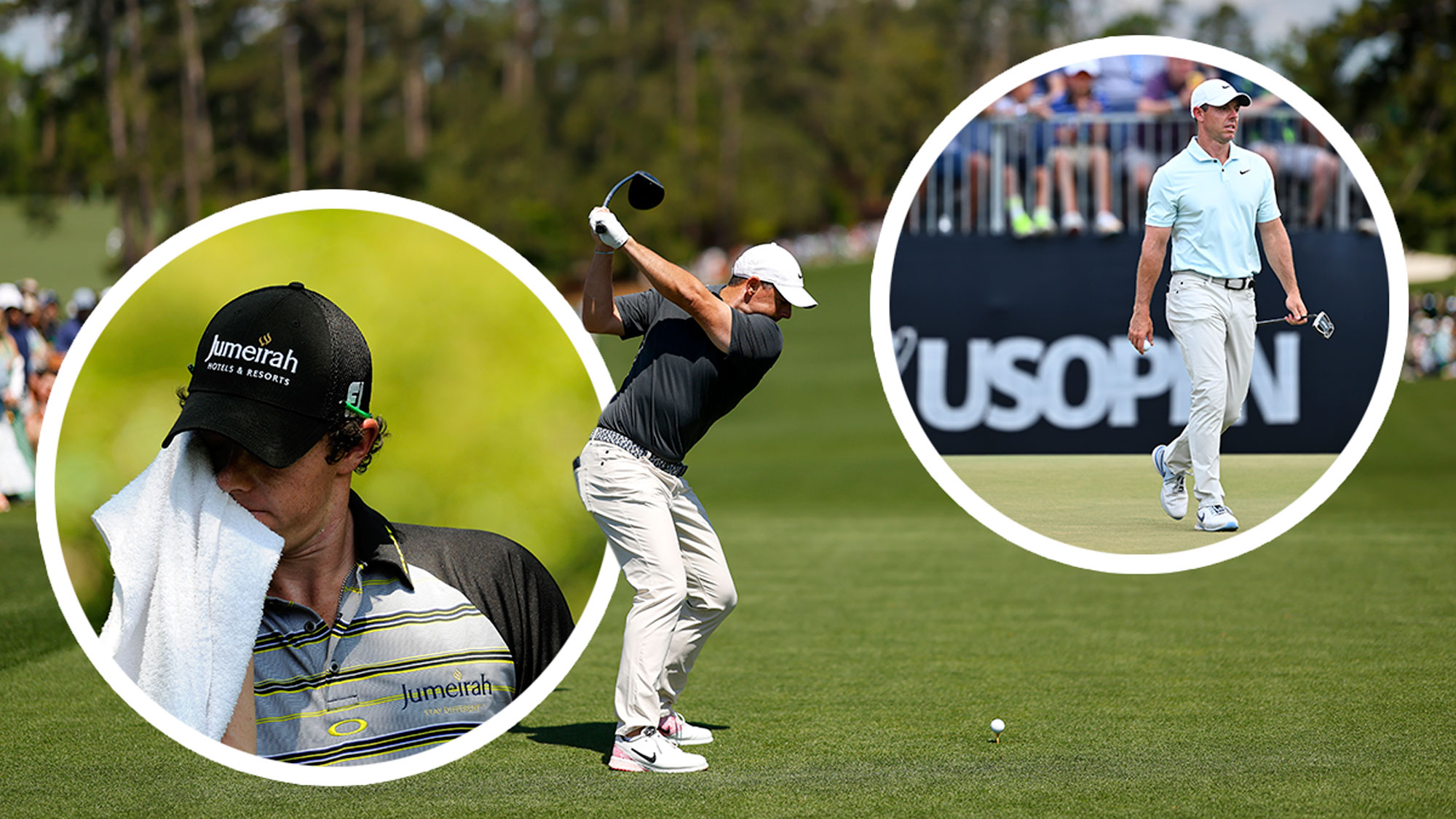 Would A Rory McIlroy Implosion At The Masters Be His Worst Defeat Ever?
Would A Rory McIlroy Implosion At The Masters Be His Worst Defeat Ever?Rory McIlroy stormed into the lead with a record breaking front nine on Saturday at Augusta National, but his turbulence in Major Championships makes me nervous
By Barry Plummer Published
-
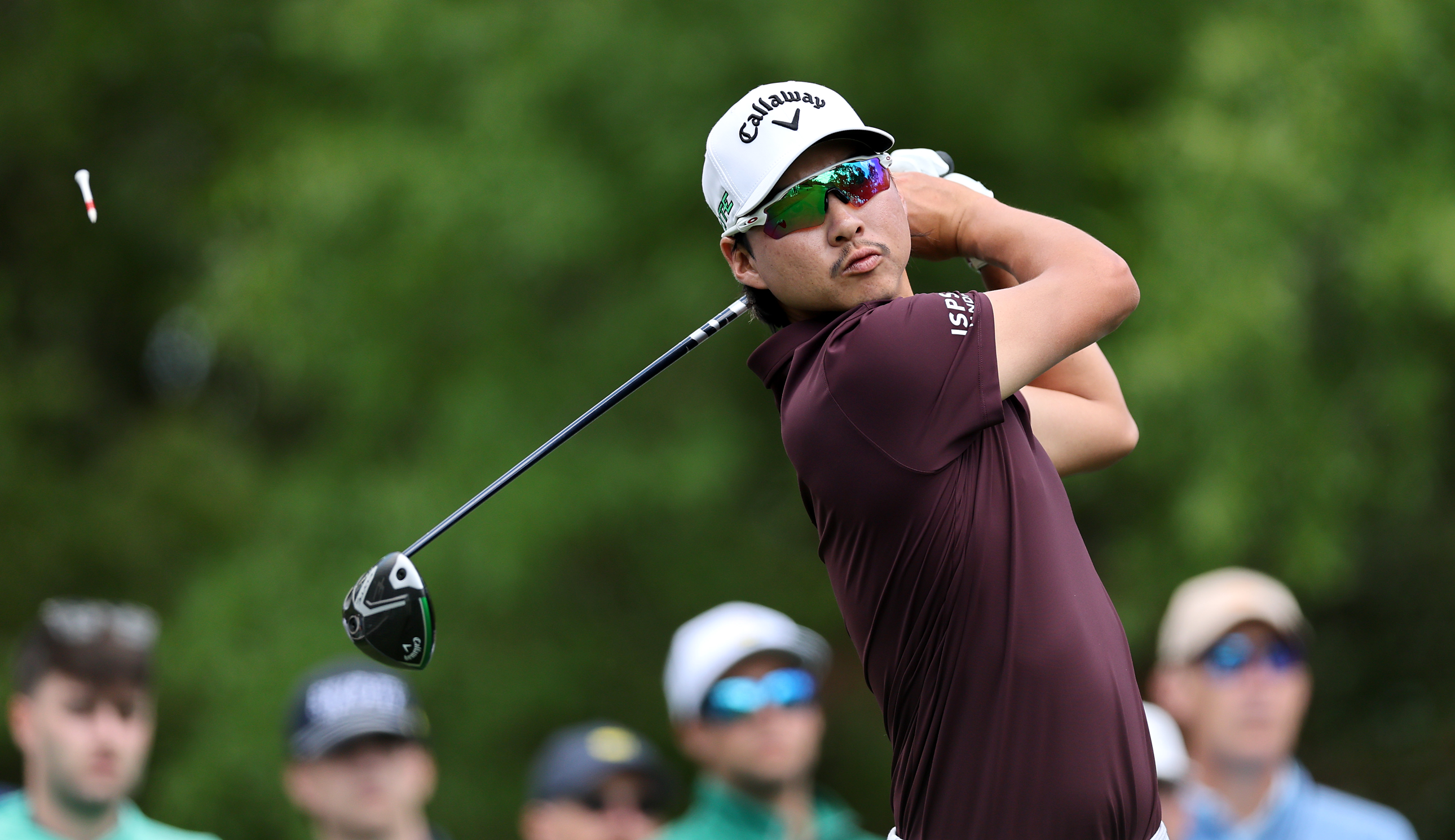 Min Woo Lee Receives Penalty At The Masters After Rules Infringement
Min Woo Lee Receives Penalty At The Masters After Rules InfringementThe recent PGA Tour winner was assessed a one-stroke penalty during the third round after he caused his golf ball to move in the fairway on the 13th hole
By Matt Cradock Published
-
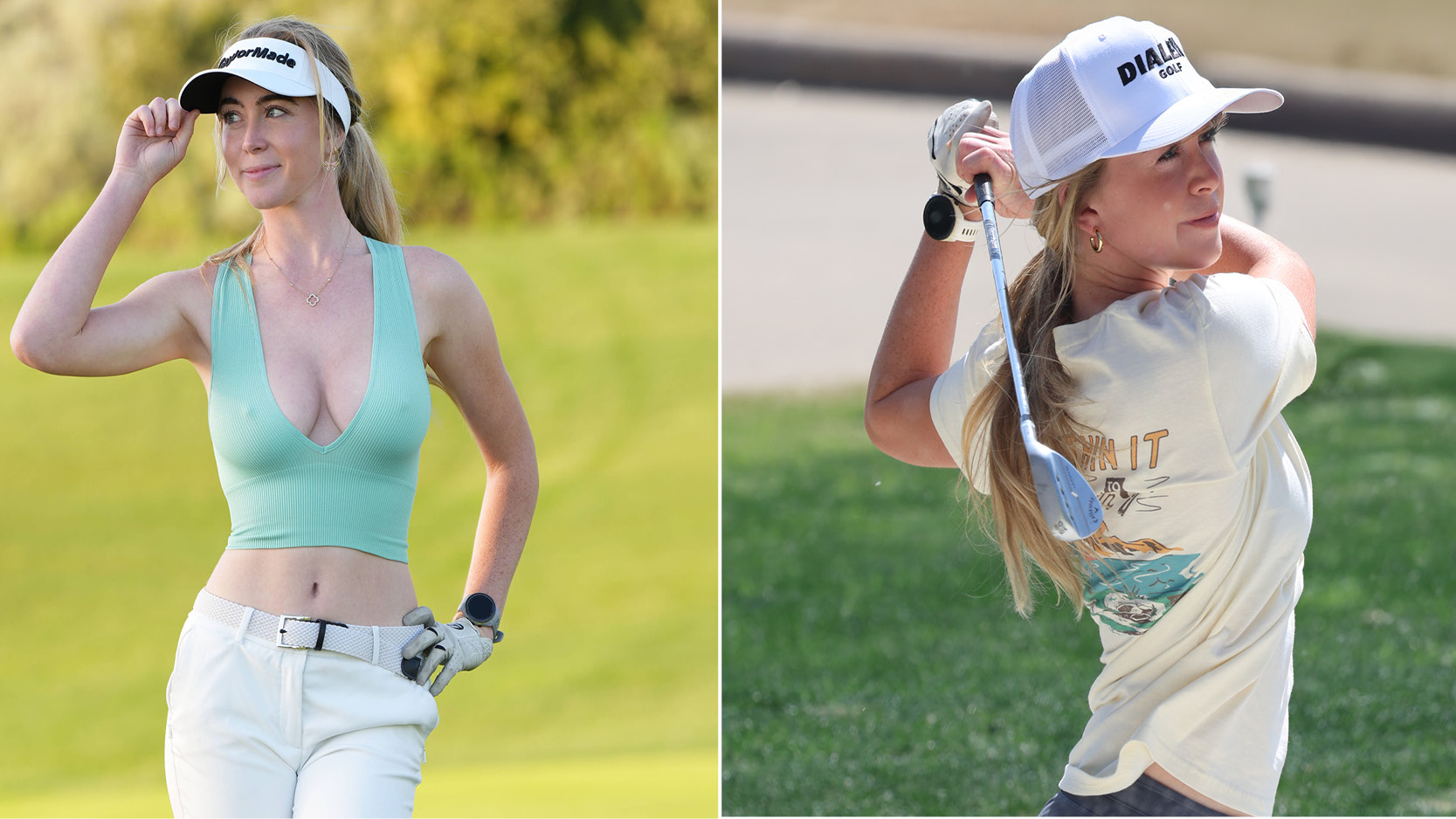 From Body-Baring To Dialed In: Grace Charis Redefines Golf Fashion
From Body-Baring To Dialed In: Grace Charis Redefines Golf FashionInfluential golf content creator Grace Charis launches new apparel brand
By Alison Root Published
-
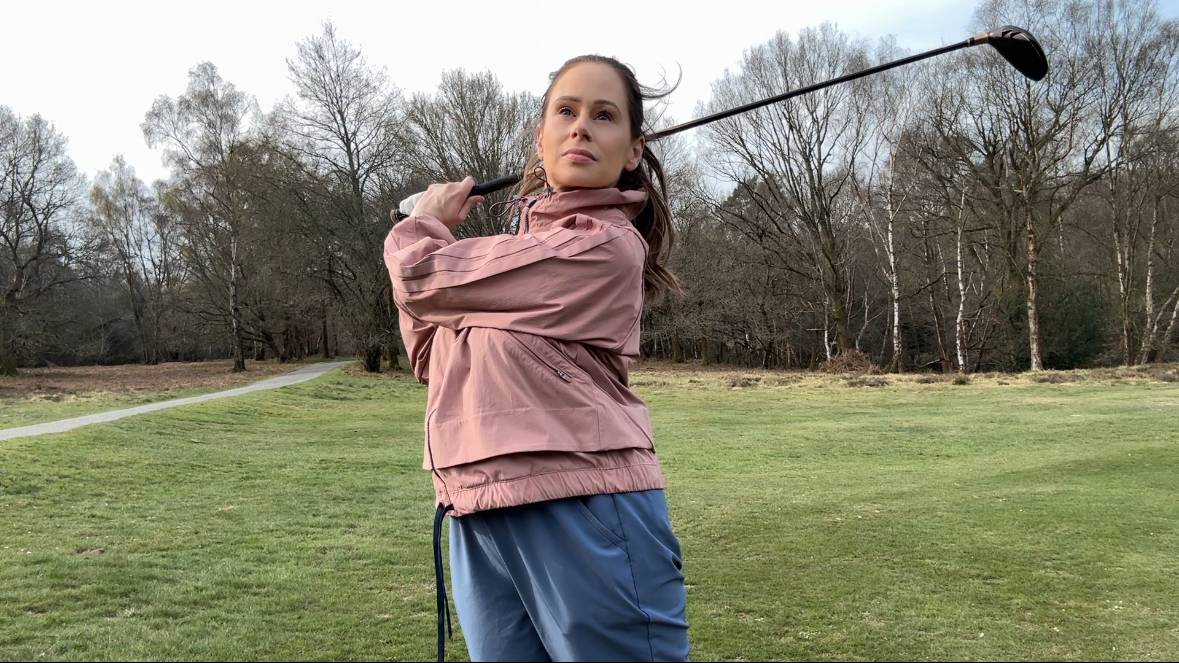 Golf Gave Me Confidence... Then Social Media's Toxic Culture Tried To Take It Away
Golf Gave Me Confidence... Then Social Media's Toxic Culture Tried To Take It AwayA young content creator's journey to own her golf game and her voice
By Katie Clarke Published
-
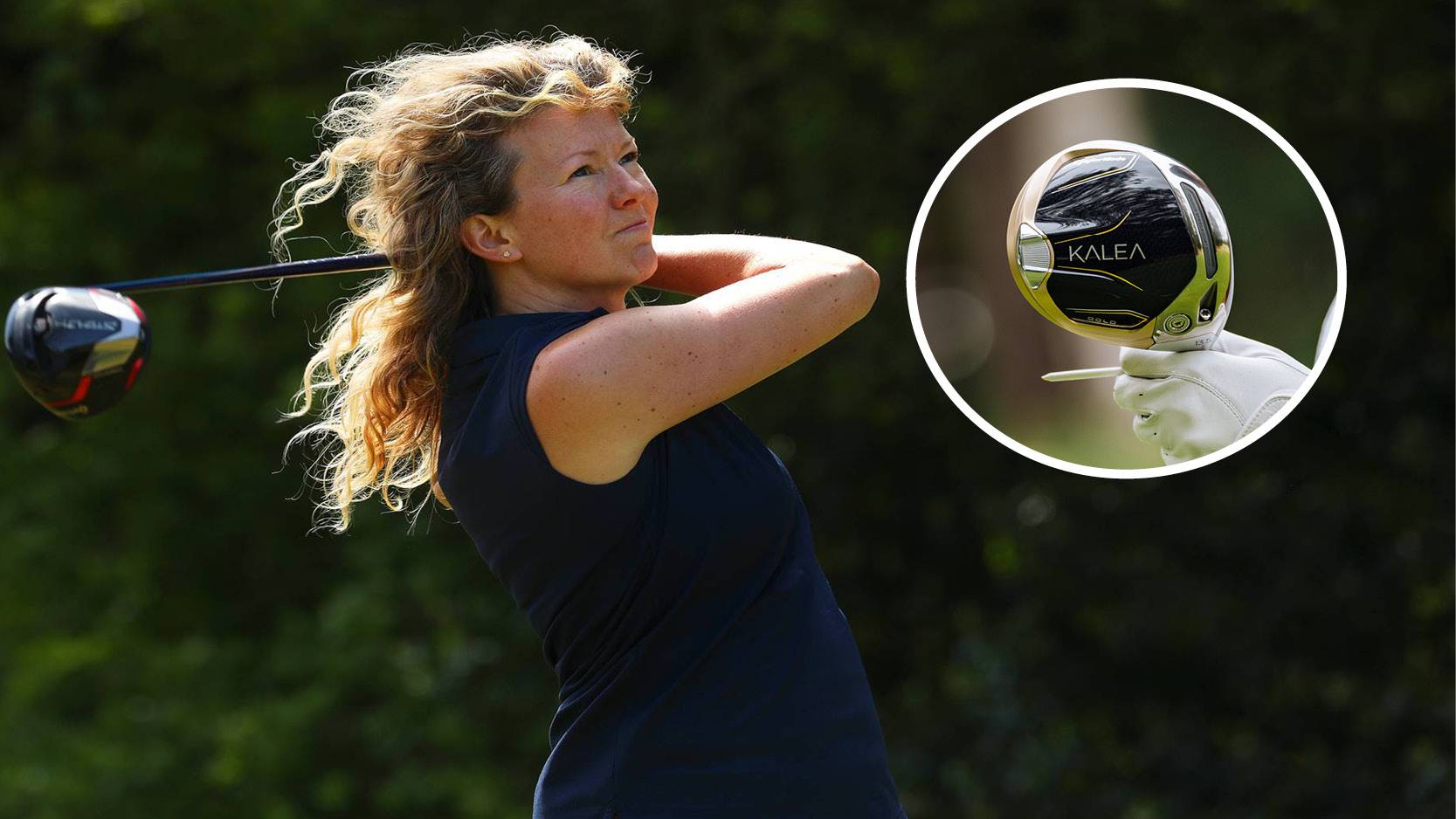 How Far Does The Average Female Club Golfer Hit Their Driver?
How Far Does The Average Female Club Golfer Hit Their Driver?We've looked at the data... Find out if you are hitting your driver an average distance
By Alison Root Published
-
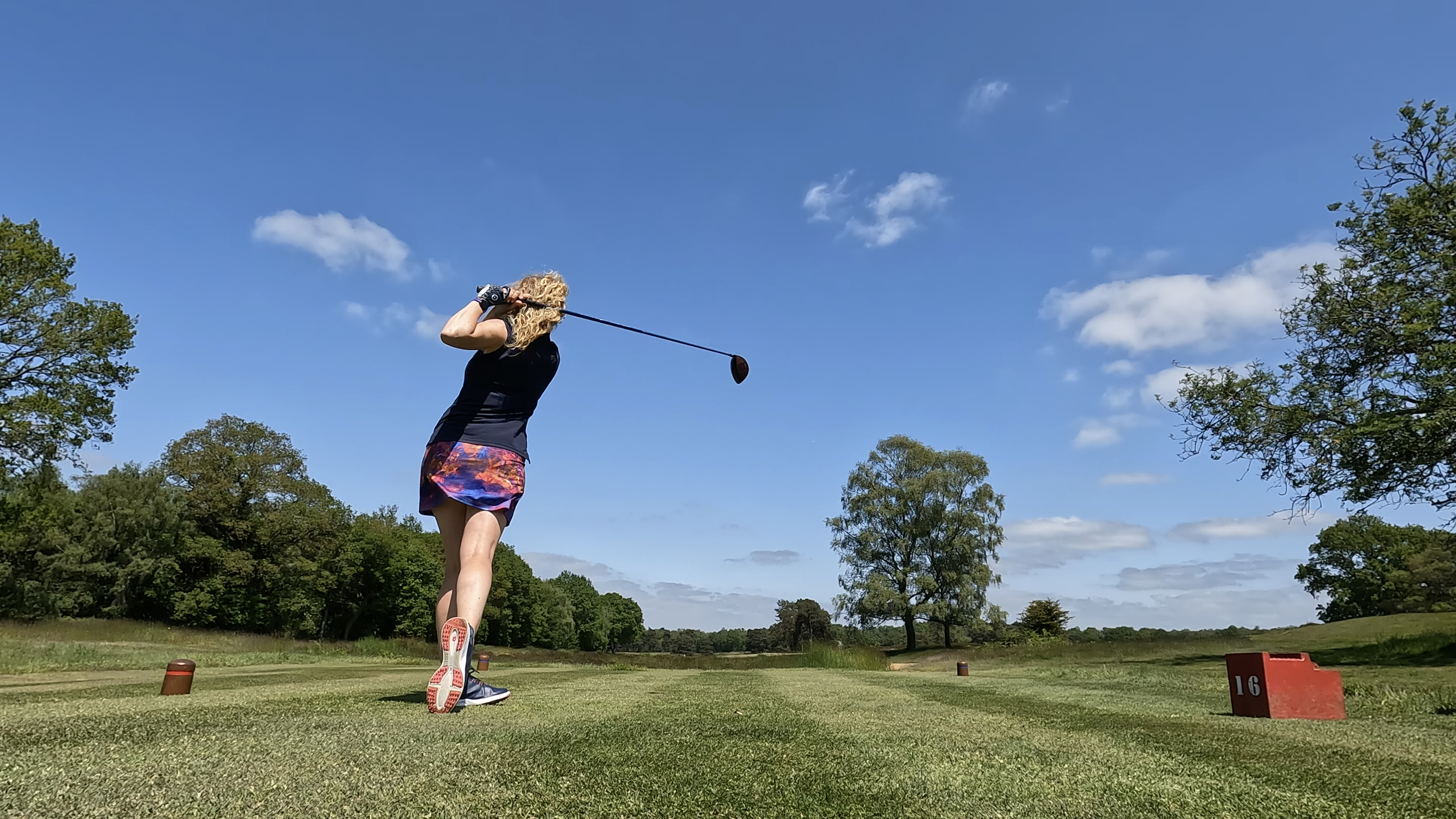 Tee Box Inequality: Why Aren't All Tees Rated For Women?
Tee Box Inequality: Why Aren't All Tees Rated For Women?Long-hitting female golfers are let down by tee ratings
By Katie Dawkins Published
-
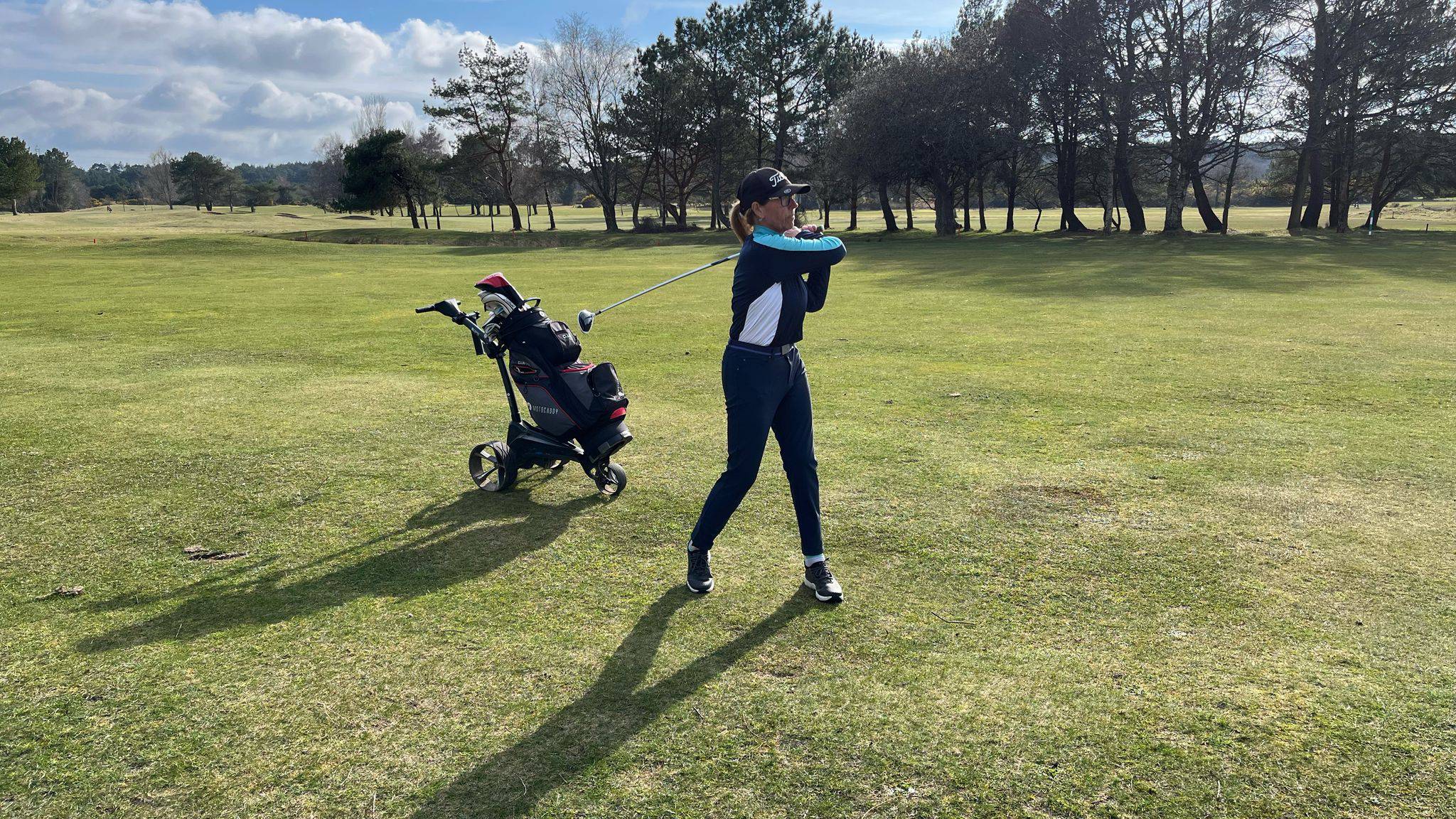 What I Learned From My First Golf Competition: The Unexpected Importance Of Preparation
What I Learned From My First Golf Competition: The Unexpected Importance Of PreparationPlaying in your first golf competition can be a daunting experience. Here are 5 tips to help you prepare for a stress-free round
By Carly Cummins Published
-
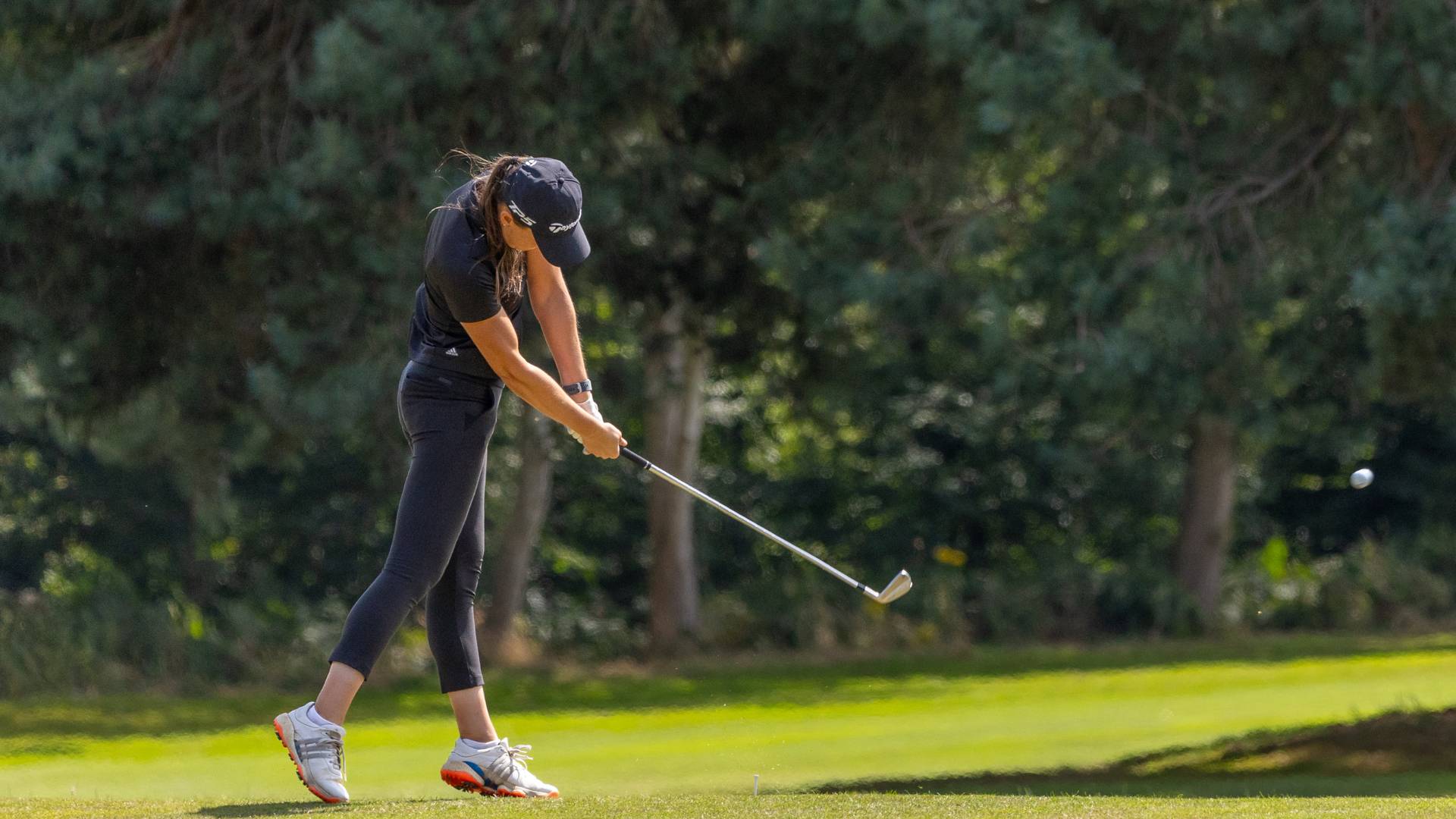 I've Always Struggled To Create That Solid, Compressed Strike... Until I Fixed These 5 Key Moves
I've Always Struggled To Create That Solid, Compressed Strike... Until I Fixed These 5 Key MovesSingle figure golfer Jess Ratcliffe on how she has fixed her swing puzzle to deliver crisp shots
By Jess Ratcliffe Published
-
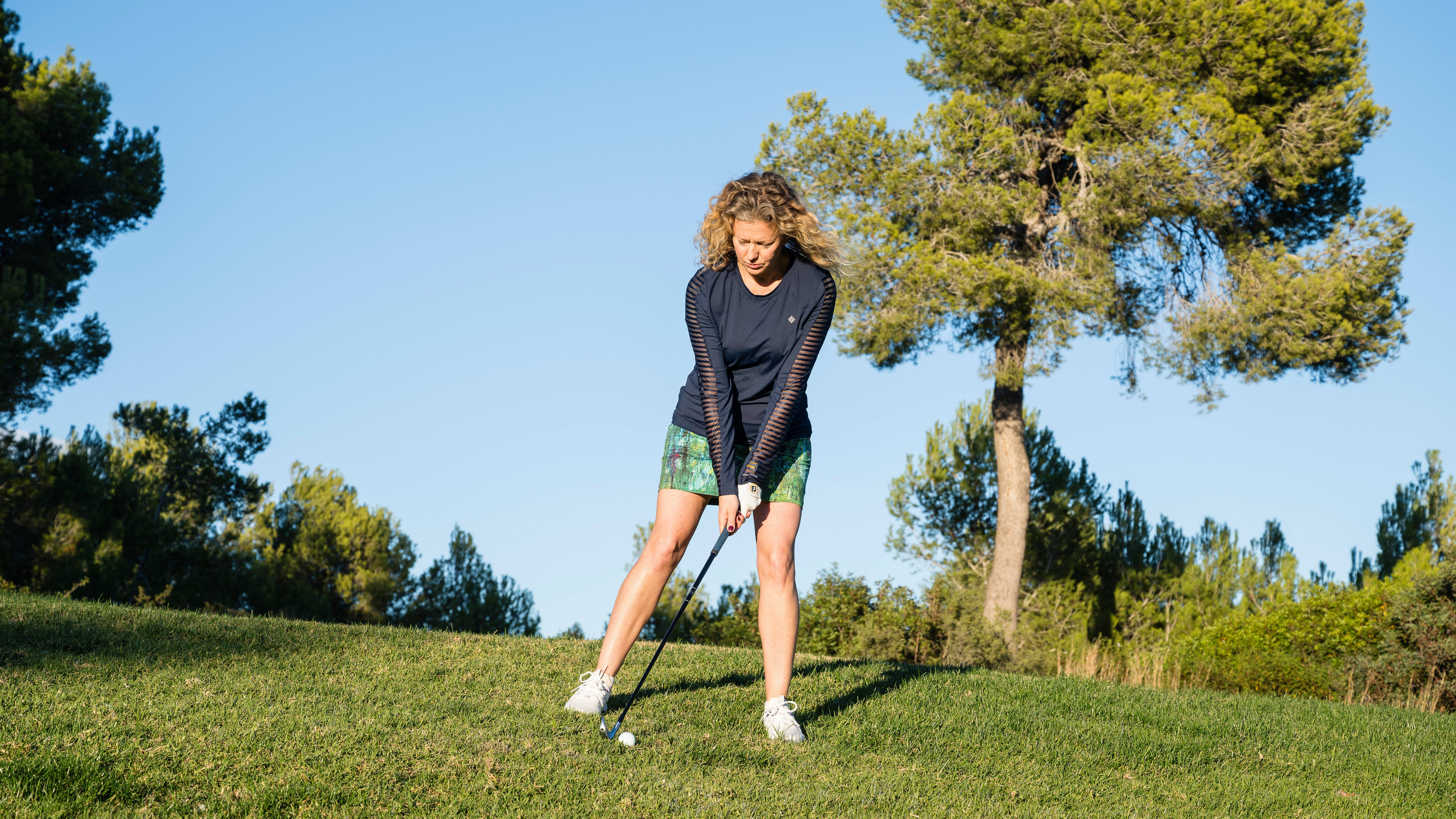 Fix These 7 Common Mistakes And You'll Be On The Path To Lower Scores
Fix These 7 Common Mistakes And You'll Be On The Path To Lower ScoresPGA Professional Emma Booth on how to fix the mistakes all high handicappers make
By Emma Booth Published
-
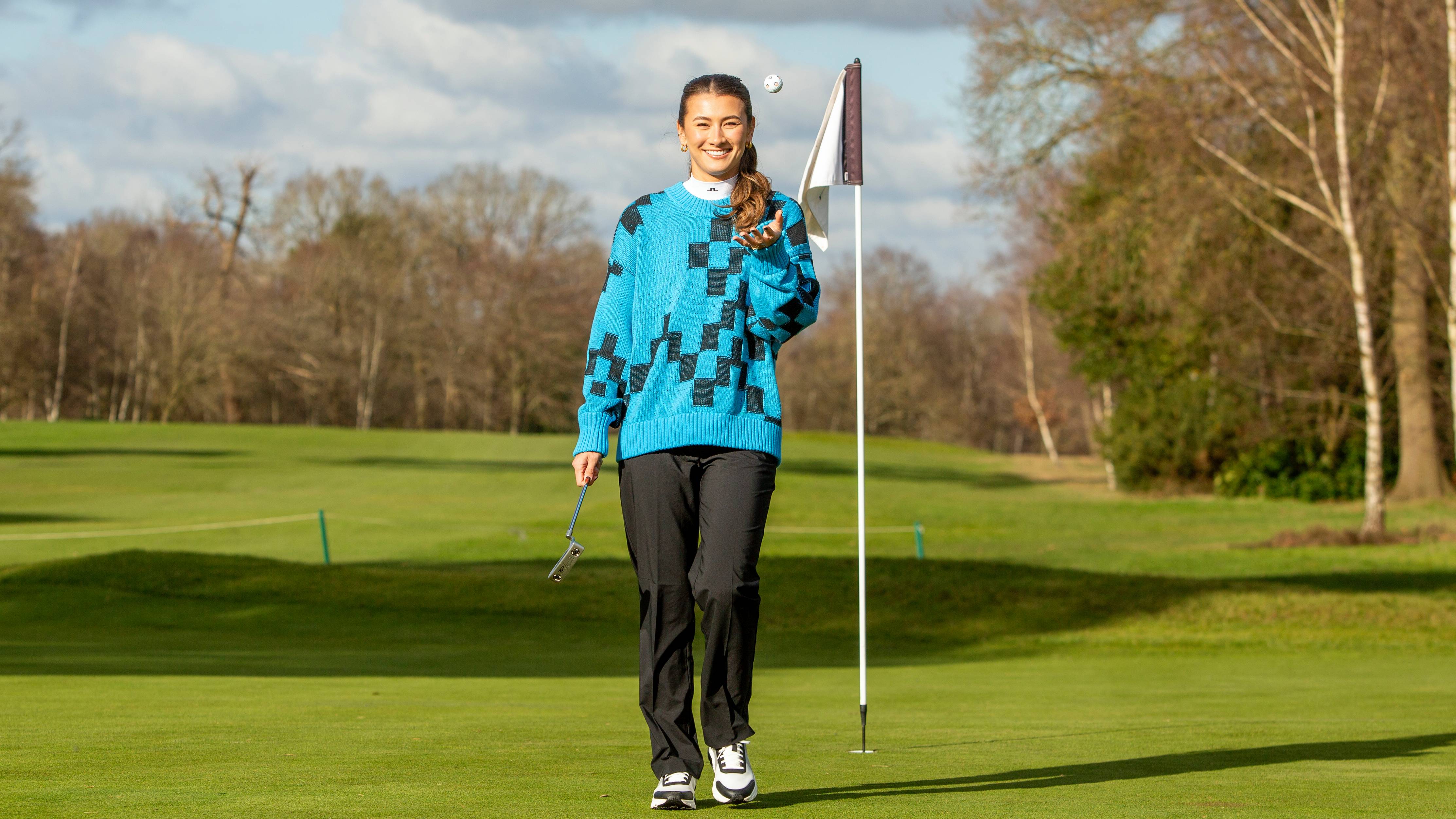 ‘It’s About Perception, Not Rules. Women Are Allowed To Wear A Lot More Than Men At Most Golf Courses’ - Mia Baker On Golf's Dress Code
‘It’s About Perception, Not Rules. Women Are Allowed To Wear A Lot More Than Men At Most Golf Courses’ - Mia Baker On Golf's Dress CodeContent creator and presenter Mia Baker on why changing mindsets is key to building a more inclusive golf community
By Alison Root Published